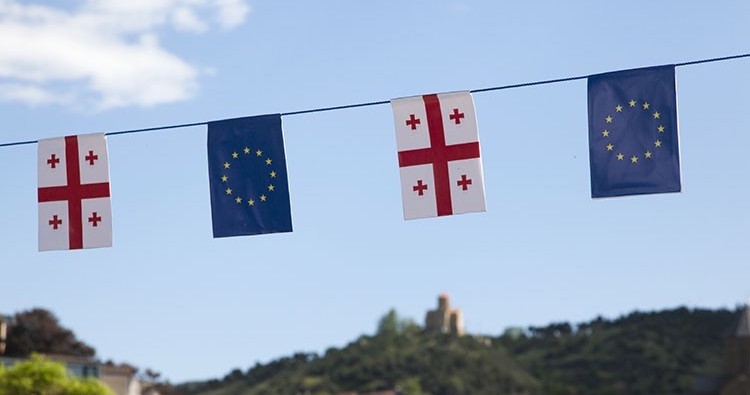EU in Georgia calls on parliament to request Venice Commission recommendations for deoligarchisation bill

EU in Georgia on Monday said that “Venice Commission opinion should be requested and implemented” before the adoption of the deoligarchisation bill. Photo: Nino Alavidze/Agenda.ge
The European Union representation in Georgia on Monday called on the country’s parliament to request recommendations from the Venice Commission of the Council of Europe and consider its feedback over the domestic deoligarchisation bill being considered for approval.
Proposed by the ruling Georgian Dream party as part of work for fulfilling conditions for obtaining the EU membership candidate status, the bill has already been adopted with its first and second readings, with only the final reading ahead.
The deoligarchisation draft law passed second reading. We reiterate our strong suggestion: a Venice Commission opinion should be requested and implemented before its adoption”, said the EU delegation.
In response to similar appeals by domestic political players, ruling party top officials have noted that it had been drafted based on the Ukrainian deoligarchisation law, calling the latter “unique” worldwide and noting it had been approved by relevant bodies of the EU.
 The Georgian parliament has adopted the deoligarchisation bill with its first and second readings. Photo: parliament press office.
The Georgian parliament has adopted the deoligarchisation bill with its first and second readings. Photo: parliament press office.
They also said they had been waiting for Venice Commission recommendations for the Ukrainian law and planned to use the comments while discussing the Georgian bill. However, Ukraine has not received feedback on its law so far.
We will hold consultations [inside the party] to discuss possible reasons why the Commission had not provided its recommendations for the Ukrainian law so far, and whether it makes any sense [for Georgia] to request for the recommendations at all. Maybe the commission has no plans to issue its recommendations on the law at all”, Mamuka Mdinaradze, the head of the ruling party in the parliament, said last week.
In their comments on the bill, a section of opposition has said it “must include” Bidzina Ivanishvili, the founder of the ruling party and former prime minister, as a “shadow ruler” of the country, while authors of the bill have pointed to criteria for defining oligarchs as outlined in the document and said mentioning specific names in the bill would be “very undemocratic”.
While in Georgia last week, Oliver Varhelyi, the EU commissioner for neighbourhood and enlargement, said that legal amendments requested by the bloc “do not apply to specific individuals”.
 Tweet
Tweet  Share
Share